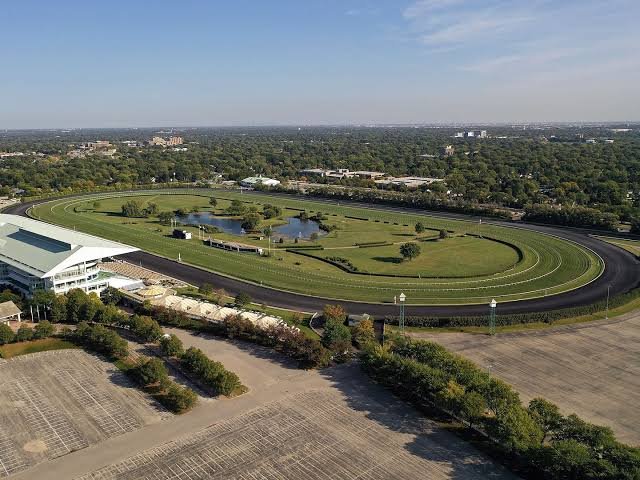
The Chicago Bears’ stadium drama has fans and lawmakers feeling whiplash.
Why it matters: The stadium saga has pitted suburbs versus the city while fans watched almost four years go by without construction starting on a state-of-the-art stadium.
The latest: In a new statement, the Bears pivoted away from prioritizing the lakefront as the home of their new stadium, instead focusing on the land they own nearly 40 miles northwest of downtown in Arlington Heights.
- It would be the first time in franchise history that the team wouldn’t play in the city limits.
What they’re saying: “Over the last few months, we have made significant progress with the leaders in Arlington Heights, and look forward to continuing to work with state and local leaders on making a transformative economic development project for the region a reality,” the Bears said Friday in a statement.
The other side: “The Bears again w/ the full stadium misdirection package,” state Rep. Kam Buckner said on X. “A hard count to bait Springfield, play-action fake to sell the lakefront dream, then a double reverse back to Arlington. This isn’t a development plan, it’s a masterclass in stadium whiplash.”
Context: When the Bears announced their intentions to build a new stadium in 2021, they went as far as buying the old Arlington Park racetrack. The move looked imminent until the team hired new president Kevin Warren, who, instead, talked about wanting the team to stay in Chicago.
- He worked with Mayor Brandon Johnson on a proposal to build just south of Soldier Field.
Yes, but: That deal counted on public funding, something Gov. JB Pritzker threw cold water on from the start.
Reality check: It was going to be an uphill battle to build a domed stadium on the Museum Campus. Even if the state coughed up millions in taxpayer dollars, the courts would most likely have been involved since park advocacy groups had threatened to sue over the statute that says no building along the lakefront.
Flashback: For decades, the Bears have flirted with moving to the suburbs. In 1975, Mayor Richard J. Daley told the team they could build outside of Chicago, but they wouldn’t be able to take the name “Chicago” with them.
Between the lines: The Bears shift coincides with yet another legislative session that hasn’t included talk of publicly funding a stadium. But the team is hoping that the General Assembly will assist with tweaking development laws to help with their infrastructure needs in Arlington Heights.
- The Bears are pitching an entertainment district with hotels, restaurants and performance venues and say revenue from the district would help them privately fund the new stadium.
The big picture: The Bears shifting away from building a new stadium in Chicago will have political reverberations, too. Johnson, unlike his predecessor, Mayor Lori Lightfoot, collaborated with the Bears on the new stadium proposal.
- Now, it will be Johnson who will likely be the mayor who lost the Chicago Bears.
- “I believe the Bears belong in the city of Chicago,” Johnson told Axios. “There’s not a politician in the state who doesn’t want to keep the Bears in the city of Chicago. But you know, ultimately, it’s going to come to the state.”
What we’re watching: The Bears and Arlington Heights are still assessing infrastructure needs for a new stadium. The Bears are under lease at Soldier Field through 2033.
The bottom line: The era of the Arlington Heights Bears is upon us.

Leave a Reply